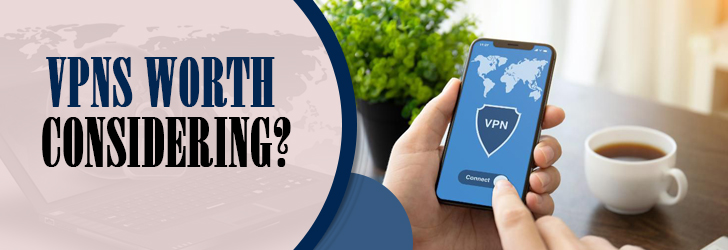
Introduction
A virtual private network (VPN) is a network technology used to extend two or more private networks over a public network (i.e. Internet). It accomplishes this by creating a secure connection between two endpoints where all of the data shared between these two are encrypted. This disallows a third-party from tampering with the data trespassing through the public network. It also means that the IP addresses of both devices on either side of the tunnel is secure from the public. This is because the IP address used on both endpoints are only used as internal IP, and they are assigned a new public IP address outside of the tunnel.
Pros and Cons of Free VPNs
It would be wise to try out the free software before acquiring a paid service. VPNs are no exception to this rule and as such, free VPNs are very common and easy to find online. While free VPNs are good, they do however come with some trade-offs and things to consider.
Most free VPNs only offer one type of encryption which is called the Point-to-Point Tunneling Protocol (PPTP). The problem with this method is that it is dated and no longer considered quite as secure as the other encryption methods. While this is a decent solution for video streaming, it will not guarantee your privacy, your data could still be leaked by prying eyes.
The quality of service is another thing to consider with free VPNs as they typically trade it off for its $0 price tag. Generally, free VPN services fall short on quality of service they deliver to its users as they often do not equip with proper tools and servers to provide the service globally. Deficiency in quality of service they provide includes latency, lack of features and compromised security. Companies do exist to profit, and the free VPN providers are no exception and they must make money from somewhere. As a result, the company may sell your information to other parties.
Performance is yet another area where free VPNs often fall short as well as there is no guarantee that their servers are as widespread as paid-for-service providers. This is because servers cost money to maintain which they do not gain from their service. As a result, the already prominent trade-off of connection speed with VPNs becomes even more pronounced as users might have to use servers even further away from their location.
Pros and Cons of Paid VPNs
On the other hand, paid VPNs do come with a price tag which is often times a monthly subscription cost. However, the benefits offered by those services are worth considering it. This is because their subscription model allows companies to be able to afford a better quality service, security, and product as a whole.
With regards to security, paid VPNs do not disappoint and ensure to deliver. While they do have PPTP security, they also sport Layer 2 Tunnel Protocol (L2TP) encryption and OpenVPN encryption; both of which were designed to provide users with complete security and privacy. This means that not only is one safe from third-party prying eyes but even from these companies themselves.
Paid service companies employ strong security measures, their quality of service instantly shoots up as well. Not only do they guarantee proper and trusted security and privacy, but they also do not tap onto making use of their clients' data for their own personal gain. These companies also provide better global coverage and ensure they have widespread functional servers to help customers anywhere. They also have customer service representatives to help their clients through any issues they may have; all of which improves the quality of their product immensely. They also have no reason to do any type of data cap or time limit for their services either as their client is already paying for it; although, some might offer better packages at higher prices.
Performance is also not an issue for these options. Their wide server coverage is all for the purpose of making sure these companies are capable of serving as many customers as efficiently as possible. As such, the issues of overhead made from encrypting data through a VPN is the only latency issue most clients fight with; not the struggle of connecting to a server out of their geographical region.
Conclusion
To put a final statement to it all, no, free VPNs aren't worth it. The purpose of using a VPN is to gain security and privacy, but they often do not provide complete privacy or security. In the event a free VPN offers some level of security and privacy, it is always with some caveat in either a drop in performance or data breach. A paid VPN services range from $3 to $12 USD per month, and the purchase is worth considering as there are benefits over free counterparts. We highly recommend you look at VPN Comparison page for a comparison of paid service providers.
Share this post
Leave a comment
All comments are moderated. Spammy and bot submitted comments are deleted. Please submit the comments that are helpful to others, and we'll approve your comments. A comment that includes outbound link will only be approved if the content is relevant to the topic, and has some value to our readers.

Comments (0)
No comment